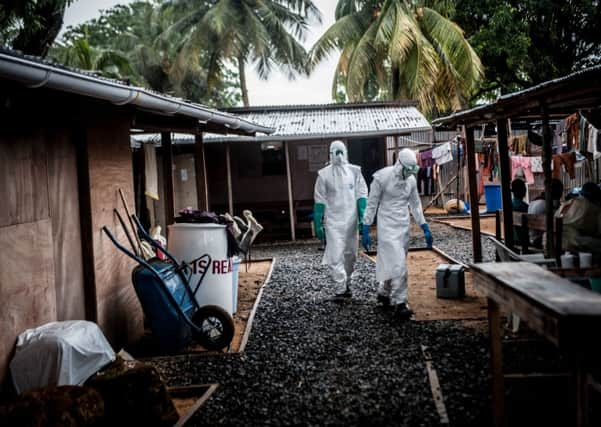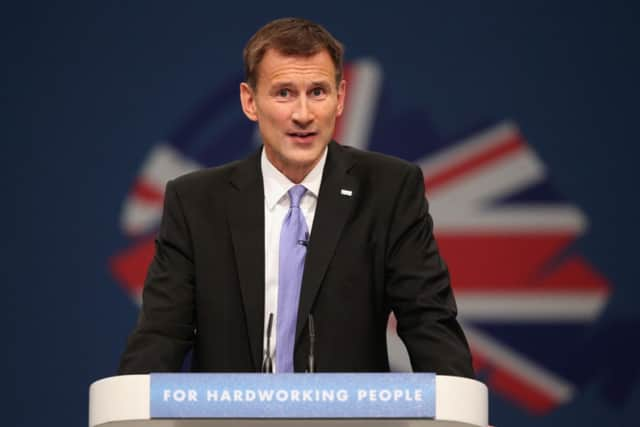Jeremy Hunt: UK likely to see up to 10 Ebola cases


Jeremy Hunt said that checks would take place at Heathrow’s Terminal 1 before they are expanded to Gatwick airport and Eurostar rail terminals by the end of next week.
He told MPs it was “likely” that Ebola will arrive in the UK and a “handful” of cases could be confirmed. The virus has killed more than 4,000 people in west Africa.
Advertisement
Hide AdAdvertisement
Hide AdIn a House of Commons statement, Mr Hunt said: “Public Health England will start screening and monitoring UK-bound air passengers identified by the Border Force coming on to the main routes from Liberia, Sierra Leone and Guinea. This will allow potential Ebola carriers to be identified, tracked and given rapid access to expert health advice should they develop symptoms.”


Mr Hunt said current advice suggested there will be fewer than ten cases in the UK over the next three months, but refused to give an exact number when asked the “worst case scenario” by shadow health secretary Andy Burnham.
Anyone who tests positive will be transferred to the Royal Free Hospital in north London, the UK’s specialist centre for treating the most dangerous infectious diseases.
There are also plans to increase capacity for Ebola patients in Newcastle, Liverpool and Sheffield to 26 beds .
Screening and monitoring – including temperature checks and a questionnaire – at Heathrow, Gatwick and Eurostar should ensure 89 per cent of people travelling to the UK from the affected region are checked, Mr Hunt said. He added that checks could be extended to Birmingham and Manchester airports if risks increase.
Callers to the NHS non-emergency 111 phoneline, including in Scotland, will also be screened for potential sufferers. Derek Macallan, professor of infectious diseases and medicine at St George’s University of London, said airport screening for Ebola would prove “really difficult” but checking the travel history of NHS 111 callers was a “no-brainer”.
David Cameron yesterday revealed that the UK had committed £125 million to tackling Ebola.
Meanwhile, the World Health Organisation has warned that Ebola is the “most severe acute health emergency in modern times”, while new cases are “rising exponentially” in westAfrica.
Advertisement
Hide AdAdvertisement
Hide AdDirector-general Margaret Chan said Ebola had shown that “the world is ill-prepared to respond to any severe, sustained, and threatening public health emergency”.
A woman in Dallas, Texas, who contracted the disease, despite wearing full protective gear while nursing an Ebola patient is still being treated.
Nursing assistant Teresa Romero, who tested positive after treating a Spanish priest in Madrid, is in a serious but stable condition.
SEE ALSO